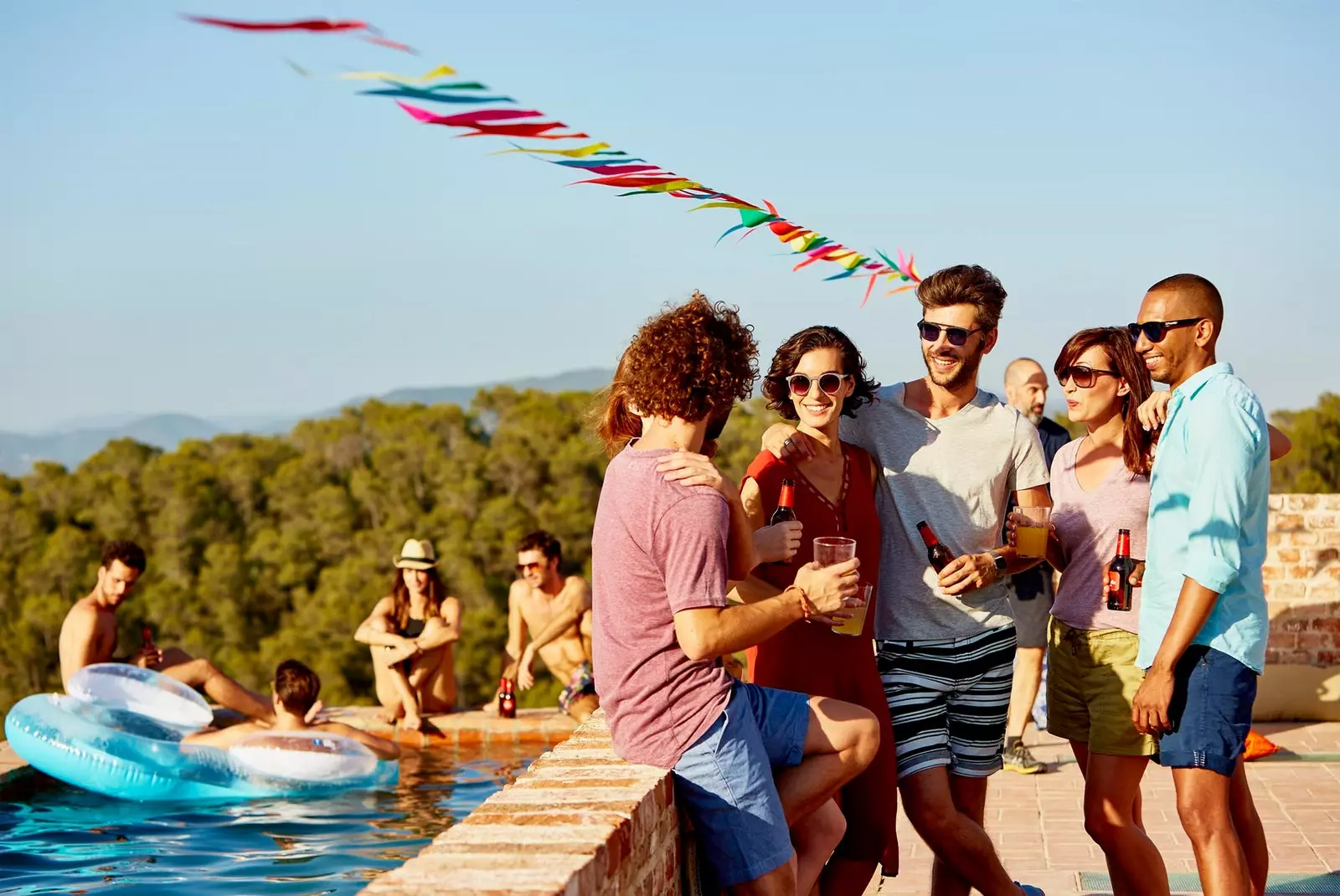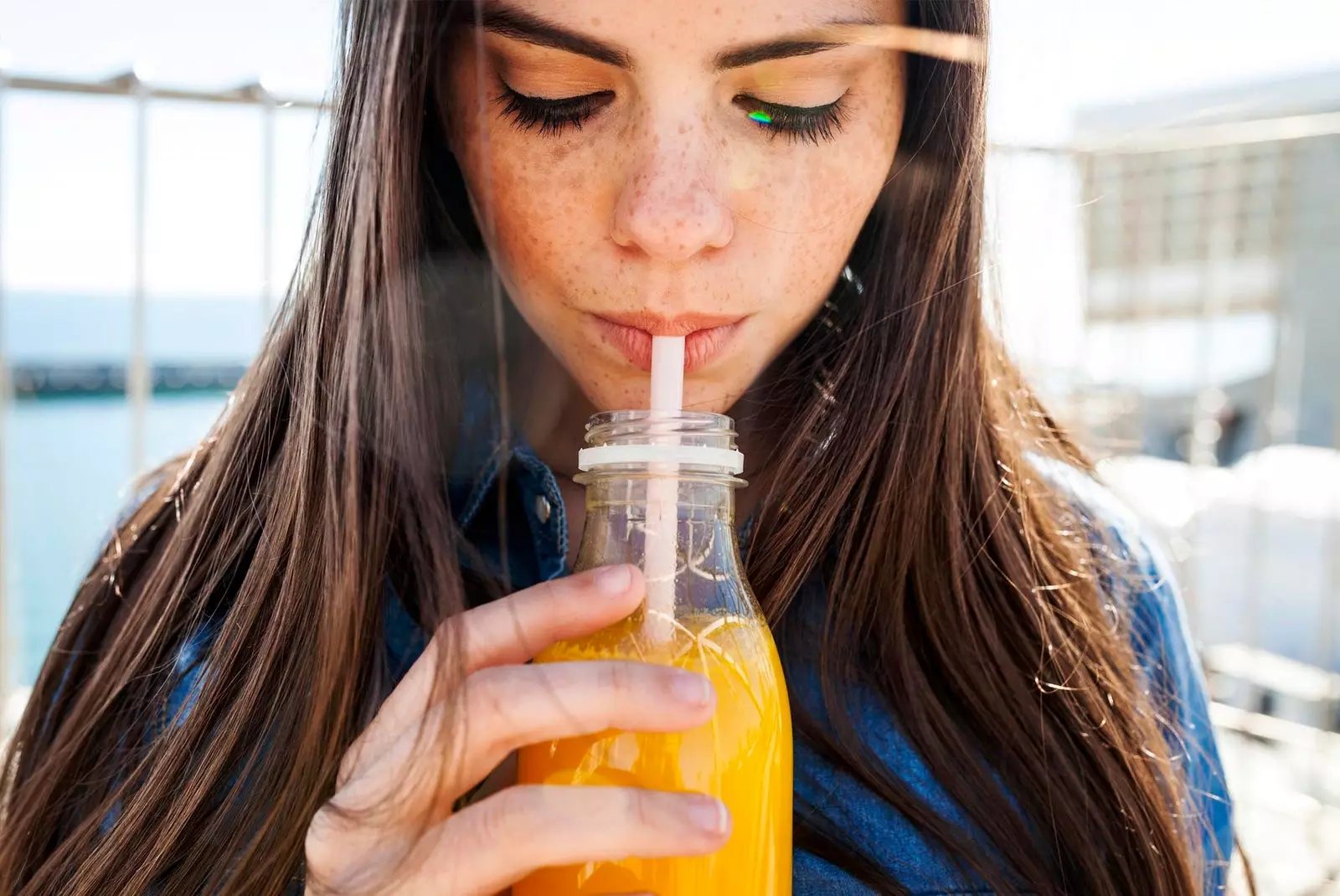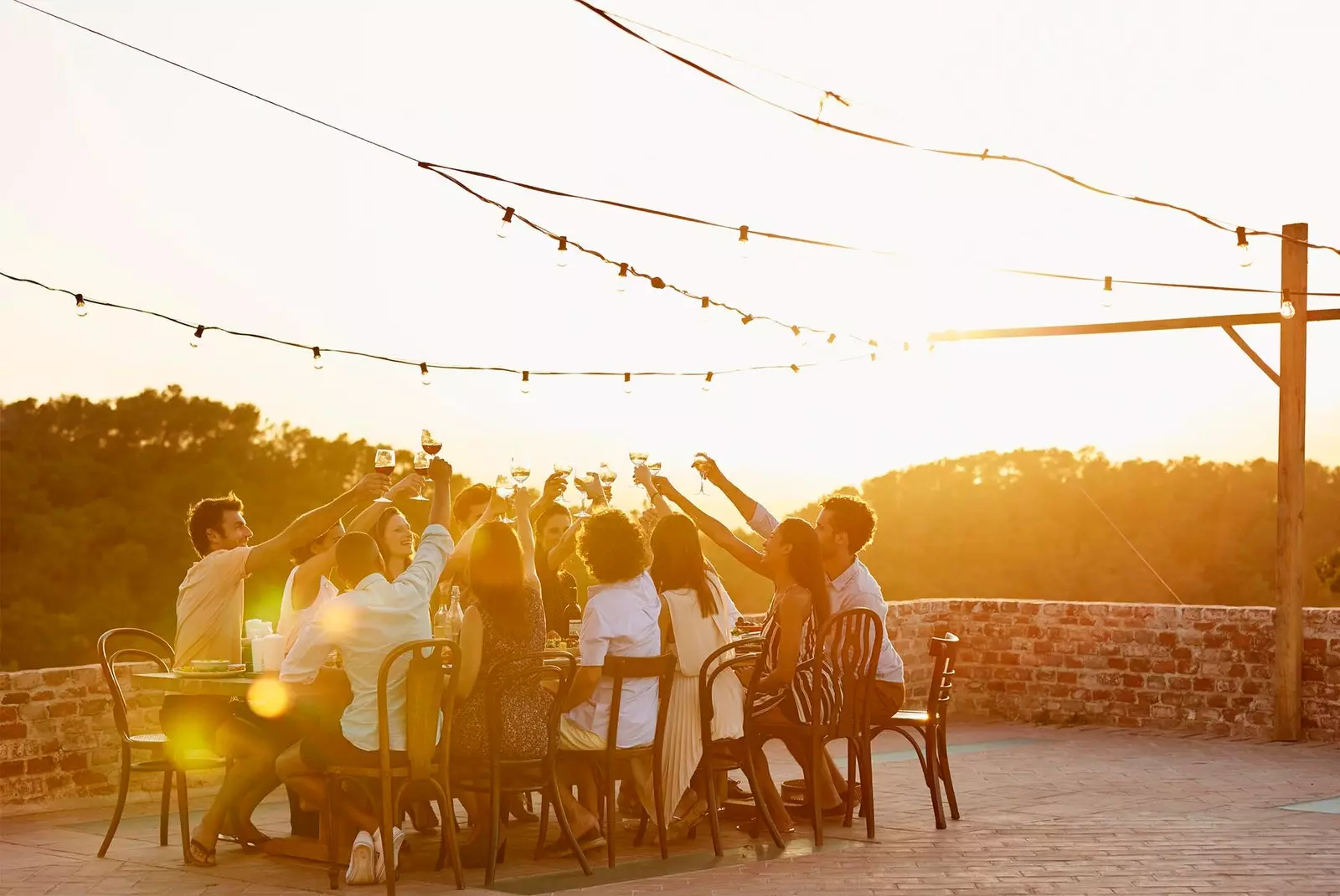
Will this image remain in the past?
Last year, Pinterest saw an increase of ¡ 746% ! in searches with the term “ sobriety ”. As reported by the social network itself in its trends for 2019, "people are putting aside alcohol and opting for a sober life, and turn to Pinterest to obtain motivational phrases and ideas of non-alcoholic drinks ”.
This is not an exclusively online phenomenon: official data says that, in countries like the United Kingdom, one in five adults declares himself a teetotaler, a figure that increases even in the age group that covers 16 to 24 years and that represents an increase of 8% in just one decade. In Spain, the WHO, which bases its conclusions on data from 2016 -the latest available- affirms that in that year the per capita consumption of alcohol by Spaniards over 15 years of age stood at 10.0 litres, while in 2010 was 10.5 liters.
If we talk about Europe, the average in the region - in a measurement that also includes Russia and the former Soviet republics - was 9.8 liters per capita in 2016, also a considerable drop compared to the 11.2 liters recorded by the WHO in 2010 . In the United States, for its part, alcohol consumption has also been increasingly reduced since 1990 among adolescents and young people, and the consequence is already being felt in the market, which increasingly offers more non-alcoholic beverages, such as Napa Hills Wine Flavored Water , which preserves the antioxidants and the memory of the flavor of the broth, but without calories or hardly any sugar.
It makes sense: the largest study on disease and death in the world, published last year in the prestigious journal The Lancet, already warned that not even a glass of wine a day is healthy , alluding to the mantra repeated a thousand times by the alcohol lobby for so many years.
"While researchers admit that moderate drinking may be slightly protective against some heart disease (as some past studies have noted), the combined risks of develop cancer, injuries and other diseases associated with alcohol consumption far outweigh those potential benefits," the BBC reported.

More and more young people declare themselves abstainers
In fact, when it comes to alcohol, no limit is safe . Thus, according to research, the health dangers associated with alcohol increase with any amount ingested , however low it may be. It is also known that its excessive consumption kills more than three million people every year throughout the world.
Returning to the newly opened world of drinks "like" with alcohol but without it, it is inevitable to look at Seedlip, the first alcohol-free distillate with zero sugar, zero calories and no allergens and artificial flavors . The four varieties of the product, which has already arrived from the United Kingdom to many bars in Spain, are the result of a process that lasts about six weeks, during which maceration, distillation in copper stills and filtering of its botanicals take place. .
It is said that this new drink is perfect to be enjoyed with tonic water or in non-alcoholic cocktails, thus assuming a "serious" alternative for non-drinkers. And, in any case, more elegant than the excessively sugary concoctions that have traditionally been served for teetotalers, such as the San Francisco.
The new product seems like an ideal option for people like Ruby Warrington , author of Sober Curious (Harper One, 2018), a book whose subtitle says it all: "The wondrous dream, the heightened ability to focus, the limitless presence, and the deep connection that awaits us all on the other side of alcohol."
“I began to question the impact alcohol was having on my overall well-being about eight years ago. I knew I wasn't an 'alcoholic', but there seemed to be very few places to talk openly about my troubled relationship with alcohol. I drank to relax and feel good , but noted a clear link between drinking and anxiety, and a lack of enthusiasm for life. Getting out of the culture of alcohol consumption to face this was very difficult, so I started this movement to help other 'normal drinkers' like me to feel more comfortable questioning their consumption, "the Englishwoman tells Traveler.es.
The title of her book is a pun reminiscent of bi curious , a phenomenon with which some heterosexual or homosexual people decide to name themselves with "curiosity" about people of the gender to which they are not normally attracted, instead of using the term "bisexual".
“Being sober-curious means putting in place a mindset that questions any instinct, invitation, or expectation to drink, rather than simply following what I call the ‘dominant drinking culture’ (i.e. drinking because everyone else is),” Warrington argues.
“The questions that people can ask themselves about alcohol are: how does it really make me feel? How will drinking make me feel now and in the days to come? Why is there so much pressure to drink sometimes? Why do I feel like I can't 'relax' or have fun without alcohol, etc. There are common themes due to the way we use alcohol in our culture, but the specific questions, and more importantly the answers, will be different for each of us."

Celebrating without alcohol seems impossible
In fact, for her, the reason that explains the rise of this trend is simply summed up in that people want to "feel good." “More and more people are investing in their well-being and are finding other things to relax and unwind, such as meditation and yoga, which are not accompanied by the hangover the next day, so alcohol seems increasingly worse option . We are also living in uncertain times, politically and environmentally, and the destabilizing effect of alcohol only adds to the air of anxiety that all of this has created. When alcohol is used to 'escape', the problems are still there the next day , and we have less energy and confidence to face them,” explains Warrington.
In addition, according to the writer, this awakening towards sobriety does not understand gender or nationality: “People from all over the world and from different backgrounds have told me how much my book made them think, from super millennials to the day of what is taking until mothers fed up with 'mom's glass of wine culture' , as well as men who want more 'real' relationships with their friends. There is also plenty of evidence showing that younger generations are drinking significantly less than their parents, showing that this is not a 'trend'; it's a mindset shift that will transform our drinking culture for years to come ”, affirms, forcefully, the author.
Warrington, in fact, likens this worldwide path to sobriety to **the rise of plant-based diets** instead of animals. And that despite the fact that she mentions that, in Spain, every celebration worth its salt is centered around beer or wine.
“In the UK, where I'm from, and in the US, where I've lived for seven years, there's this idea that European cultures have a much more 'healthy' and moderate relationship with alcohol , but this may not be the case! Still, despite the fact that in Europe there may be a 'less' need to stop -in the sense that there are fewer cases of addiction, for example-, once people realize how wonderful life is without alcohol, they will drink less and less ”.
